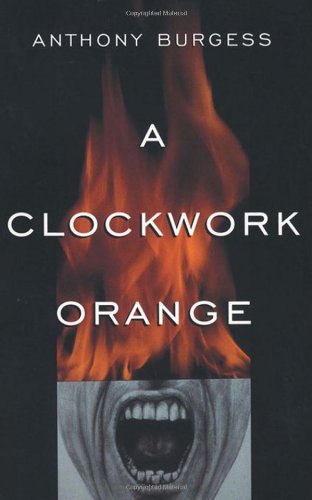Author: Anthony Burgess Genre: Dystopian Fiction Publication Year: 1962
Review:
A Clockwork Orange, penned by the brilliant wordsmith Anthony Burgess, is a daring and provocative exploration of human nature, morality, and the dangerous allure of power. Bursting onto the literary scene in 1962, this novel has since become a seminal work in dystopian fiction, known for its disturbing yet captivating narrative that pulls readers into a dark and unsettling world.
Set in a not-so-distant future, Burgess introduces us to the disturbingly charismatic and morally corrupt protagonist, Alex, who leads a gang of ultra-violent delinquents in a society plagued by anarchy and decay. The narrative unfolds through Alex's eyes, utilizing his own distorted language known as "Nadsat," a clever mix of English, Russian, and slang. Burgess's masterful command of this invented language adds an immersive layer to the reading experience, immersing readers in Alex's twisted mind and the gritty underbelly of society.
Central to the novel is the exploration of free will, morality, and the repercussions of a society's attempt to control and manipulate its citizens. Alex's journey takes an unexpected turn when he is captured and subjected to an experimental form of aversion therapy, intended to "cure" him of his violent tendencies. As the plot unfolds, Burgess invites readers to question the nature of goodness, the limits of individual agency, and the dangers of imposing one's will on others.
What sets A Clockwork Orange apart is Burgess's brilliant and unapologetic prose, which oscillates between lyrical beauty and brutal violence. He fearlessly delves into the darkest corners of the human psyche, forcing readers to confront their own capacity for both good and evil. While some may find the novel's explicit scenes of violence and sexual depravity distressing, it is precisely these elements that make the book so powerful and unforgettable.
Beyond its gripping narrative, A Clockwork Orange is a scathing critique of authoritarianism and the dangers of social engineering. Burgess raises profound questions about the role of the state in shaping morality and the ethical implications of depriving individuals of their freedom to choose, even if their choices are reprehensible. This exploration of the fine line between freedom and oppression remains as relevant today as it was when the book was first published.
A Clockwork Orange is not a book for the faint of heart, but for those willing to delve into the depths of darkness, it offers a thought-provoking and intellectually stimulating experience. It challenges readers to grapple with complex philosophical concepts while leaving a lasting impact on their understanding of humanity and the inherent power struggles within society.
In conclusion, A Clockwork Orange is a dark masterpiece that pushes the boundaries of conventional storytelling. Anthony Burgess's evocative language, uncompromising exploration of human nature, and profound social commentary make it a must-read for fans of dystopian literature and those who seek to confront the disturbing realities of our world.

Comments
Post a Comment